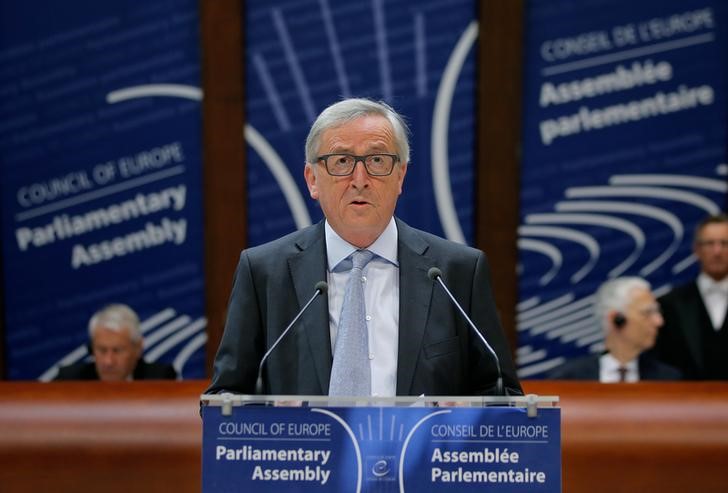STRASBOURG (Reuters) - Growing euroscepticism in the EU is partly due to too much interference from Brussels in ordinary people's lives, which needs to be toned down, the head of the European Commission said on Tuesday.
In comments likely to resonate in Britain as it gears up for a June referendum on whether to stay in the bloc, Commission President Jean-Claude Juncker said more powers should rest with the capitals rather than central EU institutions.
Asked by British conservative lawmaker Nigel Evans what he planned to do about growing euroscepticism, Juncker said: "I think that one of the reasons why European citizens are stepping away from the European project is due to the fact that we are interfering in too many domains of their private lives.
In many of those areas, individual states were "better placed to take action and to pass through legislation."
For that reason, Brussels was passing far fewer new pieces of legislation than under previous presidents, Juncker said.
He was speaking after Dutch voters, in a swipe at their government as well as the EU, rejected closer ties with Ukraine earlier this month, having also voted against a proposed EU constitution in 2005.
"I made it clear back in 2006 that the European project was running out of steam, there was disappointment. I don't think the situation has fundamentally changed, on the contrary," Juncker told the parliamentary assembly of the Council of Europe.
"Yes it's right we are not very popular when we plead the case for Europe. You are no longer respected in your country if you insist that in the necessity of supra-national bodies."
Voters in EU's newer eastern member states including Poland and Hungary have also in recent years elected governments that are more critical of the EU.
But Juncker also said more close cooperation was needed between the 28 states to tackle joint challenges, including the migration crisis and security threats, and he has strongly advocated for Britain to stay in the EU.

"We were wrong in overregulating and interfering too much in the daily lives of our fellow citizens... But we would also be wrong if we insufficiently respected the principle of solidarity."